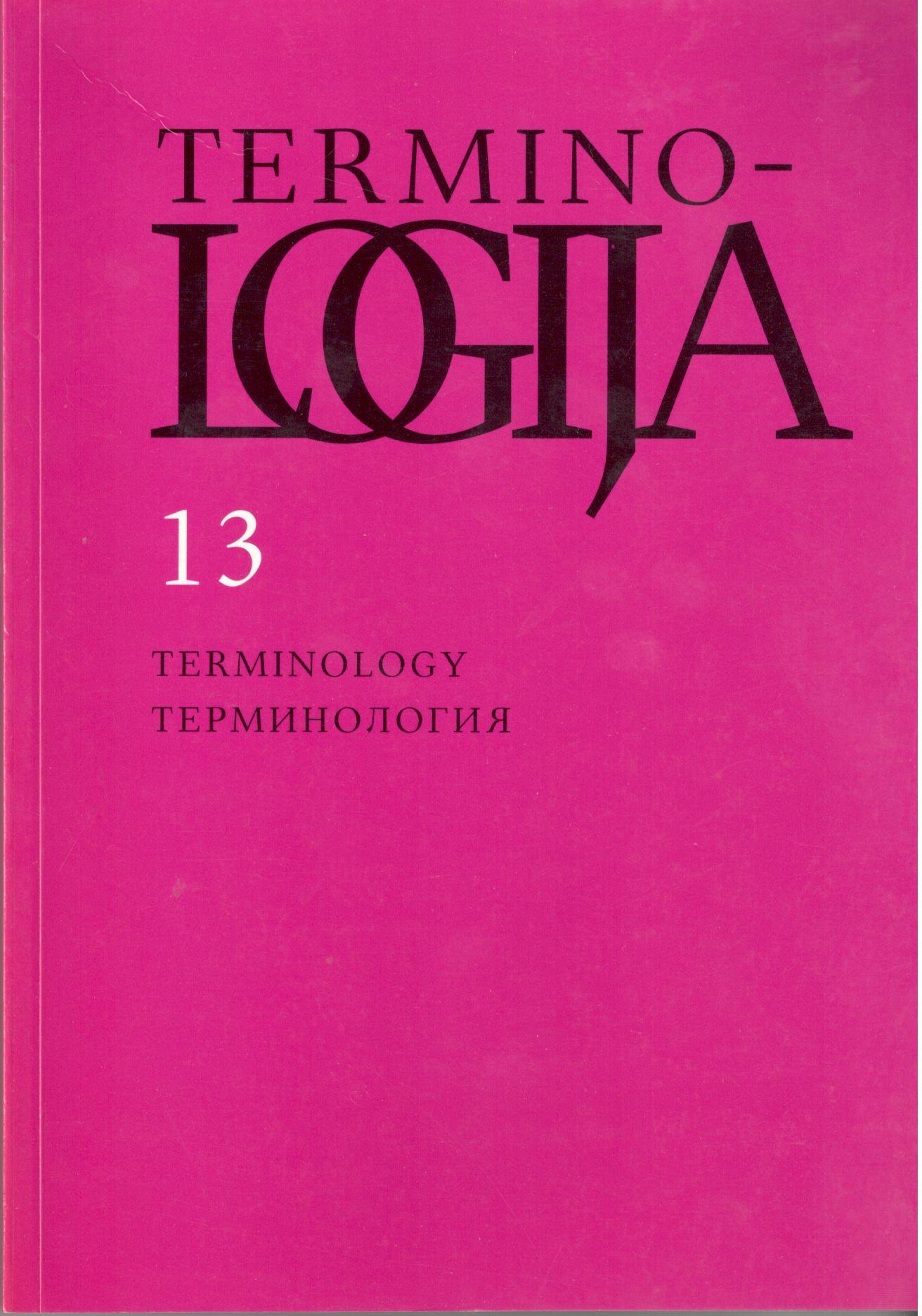Iš etnonimų istorijos
From the history of ethnonyms
Author(s): Vincentas DrotvinasSubject(s): Language and Literature Studies, Lexis, Semantics, Descriptive linguistics, Baltic Languages, Philology
Published by: Lietuvių Kalbos Institutas
Keywords: borrowed vocabulary; ethnonym; lexis; lithuanisation; old Lithuanian writtings; origin
Summary/Abstract: This paper deals with a group of ethnonyms in the semantic field of the names of nationalities, taken from old Lithuanian writings (16-18th centuries). It discusses the origin of ethnonyms, their Lithuanisation and survival in the standard language.In respect of content, the ethnonyms discussed are names of European nationalities.According to origin, ethnonyms (except for the name of Lithuanians themselves) are part of the borrowed vocabulary of the Lithuanian language.The origin of ethnonyms differs: they are Baltic (lietuvis (Lithuanian), latvis (Latvian), prūsas (Prussian)), borrowings from the Old Slavonic (lenkas (Pole)), German language (Lith. vokietis, Lat. vācietis) or newer ethnonyms which came through intermediary languages.The majority of old ethnonyms have survived into modern Lithuanian.Some old borrowed ethnonyms became archaisms and were substituted with newer names (unguras – vengras (Hungarian), pinas – suomis (Finn), šatas – škotas (Scot)).The traditional inventory of old ethnonyms is constantly being complemented with new ethnonyms. This is a reflection of economic and cultural relations between Lithuania and other European and world nations.
Journal: Terminologija
- Issue Year: 2006
- Issue No: 13
- Page Range: 160-169
- Page Count: 10
- Language: Lithuanian

